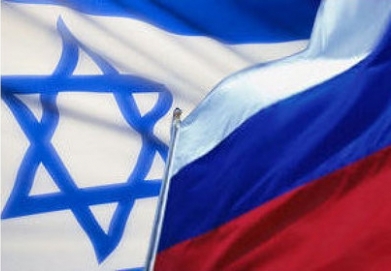Israel-Russia Relations and the Downing of Russian Aircraft over Syria

Two of the latest developments suggest that Russia and “Israel” are backing away from the “crisis” that some in Alt-Media eagerly hoped would transpire between them as a result of the downing of a Russian Jet.
The purpose of this brief observation is to update the reader on what the author wrote in his two pieces from earlier today:
“Initial Reaction To The Russian-‘Israeli’ ‘Crisis’”
“Russian-‘Israeli’ Tensions Are In The Interests Of The US And Iran”
The main points were that a pro-American “deep state” faction in “Israel” might be responsible for yesterday’s tragic occurrence, and that the US and Iran both have an interest (albeit for very separate reasons) in exacerbating the distrust between Moscow and Tel Aviv to the point of generating a full-fledged crisis.
That being the case, Russia and “Israel” appear to be signaling to one another that neither wants an escalation of tensions with the other, which also suggests that their leaderships are in constant communication over what transpired.
President Putin took the first step by releasing the following statement through his spokesman:
“The president offers sincere condolences to all relatives, friends and colleagues of the downed jet’s crew members.”
This noticeably omits any reference to the Russian Defense Minister’s earlier statement holding “Israel” fully responsible for what happened.
Aware of this, the “Israeli Defense Forces” reciprocated by releasing what might be their first-ever public expression of sympathy for ‘collateral damage’:
“Israel expresses sorrow for the death of the aircrew members of the Russian plane that was downed tonight due to Syrian anti-aircraft fire.”
The second part of that tweet predictably lays the blame on Syria, while subsequent messages expand the reach of culpability to include Iran and Hezbollah, too.
The point to focus on, however, is that “Israel” implicitly acknowledges that it didn’t intend for the situation to unfold as it did, which when taken together with President Putin’s statement, suggests that a climb-down is in effect between both parties and that the “crisis” that the US and Iran were hoping for might not materialize.
*
Note to readers: please click the share buttons above. Forward this article to your email lists. Crosspost on your blog site, internet forums. etc.
This article was originally published on Eurasia Future.
Andrew Korybko is an American Moscow-based political analyst specializing in the relationship between the US strategy in Afro-Eurasia, China’s One Belt One Road global vision of New Silk Road connectivity, and Hybrid Warfare. He is a frequent contributor to Global Research.

